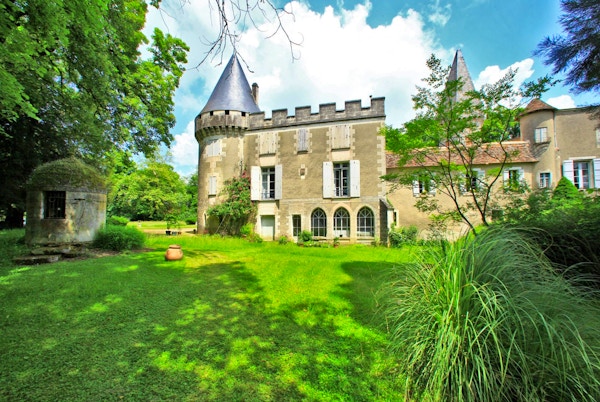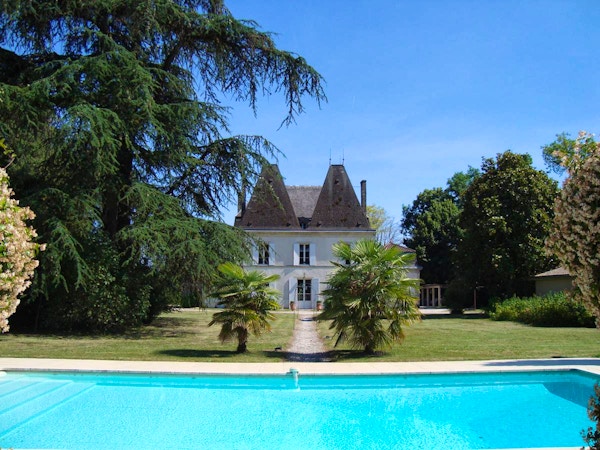Why bother with a château?
History on your doorstep
French châteaux aren’t just houses; they are slices of history. Some have hosted kings, others have seen revolutions, and now you could be the next chapter in their story. It’s a big responsibility, but also a huge privilege.A different kind of luxury
Forget cramped city flats. Châteaux come with space, lots of space. We’re talking sweeping lawns, secret gardens, maybe a chapel or a turret or two. It’s your own private escape, perfect for family get-togethers or just soaking up the peace and quiet.Could it pay for itself?
Many people convert their châteaux into B&Bs, boutique hotels, wedding venues, or even glamping sites. Some grow grapes or truffles, others host yoga retreats. There’s potential to make money but don’t expect it to be easy money. It’s hard work, but it can be rewarding, and in more ways than one.
What’s It Going to Cost?
The big price tag
You’ll see châteaux for sale from a few hundred thousand euros to several million. The price depends on where it is, how big it is, and whether it’s a crumbling ruin or ready to move in.Renovation reality
Most châteaux need some TLC. Roofs, plumbing, wiring and heating - these aren’t cheap fixes. And then there’s the garden, the outbuildings and whatever surprises are lurking behind those ancient walls. Always keep a bit extra in the budget for the unexpected.Ongoing bills
Don’t forget about taxes (France loves a good property tax) and insurance, especially if you’ve got antiques or valuable art. These can be a bit steep, so factor them in.Finding 'The One'
Location, location, location
Do you want to be in the heart of wine country, near the coast or tucked away in the middle of nowhere? Châteaux in touristy spots cost more but might earn more if you’re planning to rent out rooms or host events. Remote spots are cheaper but can be a bit lonely, look at regions below the Loire for a warmer and drier climate.
How much space do you really need?
Some châteaux are cosy, others are basically small villages. Think about how much you want to maintain. More rooms mean more cleaning, more repairs and heating bills.Check the rules
Some châteaux are protected as historic monuments which is great for bragging rights but means you’ll need permission for any major changes. Always work with someone who is familiar with the local laws and can help you avoid unpleasant surprises.The buying process (in a nutshell)
1. Start your search
Browse specialist websites, chat with local agents and don’t be afraid to ask about “off-market” gems.
2. Go for a look
Visit in person, ideally more than once. Take your time, what looks dreamy in summer might feel a bit bleak in winter.
3. Make an offer
If you find the one, make an offer. If it’s accepted, you’ll sign a pre-contract (“compromis de vente”) and pay a deposit.
4. Legal bits
A notaire (French property lawyer) will take care of the paperwork, check everything’s in order, and guide you through the process. There’s a 10-day cooling-off period after you sign the pre-contract.
5. Get the keys
Once all’s done, you sign the final deed and the château is yours! The whole thing usually takes 2–3 months, but don’t be surprised if it drags on a bit.
Restoring your dream
It’s a project, not a holiday
Restoring a château is a marathon, not a sprint. You’ll need good tradespeople, a sense of humour and a lot of patience. If your property is listed, you’ll need official permission for any significant changes, but there may be grants or tax breaks available to help offset the costs.Go green
Many owners are getting clever with eco-friendly upgrades like solar panels, better insulation and modern heating. It’s good for your bills and the planet.Paying for it all
Mortgages
French banks do lend to non-residents, but you’ll need a chunky deposit and plenty of paperwork. Be ready to prove where your money comes from.Other ways
Some buyers use private loans, family help, or even investors. Others use the château’s earning power, renting rooms, hosting events or farming the land, to help cover costs.Making it pay
Tourism
Open your doors for tours, host workshops or run a B&B. France is packed with tourists, so there’s always demand for something a bit special.Events
Châteaux make brilliant wedding or party venues. If you’ve got the space and the patience, this can be a great earner.Agriculture
Got land? Think vineyards, orchards, or even truffle hunting. There are grants and schemes out there if you do your homework.Watch out for…
- Surprise costs: Always budget for more than you think you’ll need.
- Optimistic income forecasts: Don’t count your chickens; tourism and events can be seasonal.
- Red tape: French property law is complicated. Get good advice from people who know their stuff.
- Loneliness: Remote châteaux can be isolating, especially in winter. Make sure it’s the lifestyle you want.
Top Tips
- Get a good agent: A bilingual, local expert is worth their weight in gold.
- Inspect everything: Outbuildings, roofs, cellars and everything in between.
- Think long-term: This is more than a house; it’s a way of life.
- Learn from others: Read blogs, watch TV shows and talk to other owners.
Ready to start your adventure?
Buying a château in France is a big step, but it’s also a fantastic adventure. With the right help, our in-depth 40-page buyer’s guide, a bit of patience and a sense of fun, you could be living your French fairytale. When you’re ready, check out my-french-house.com and see what’s waiting for you!

